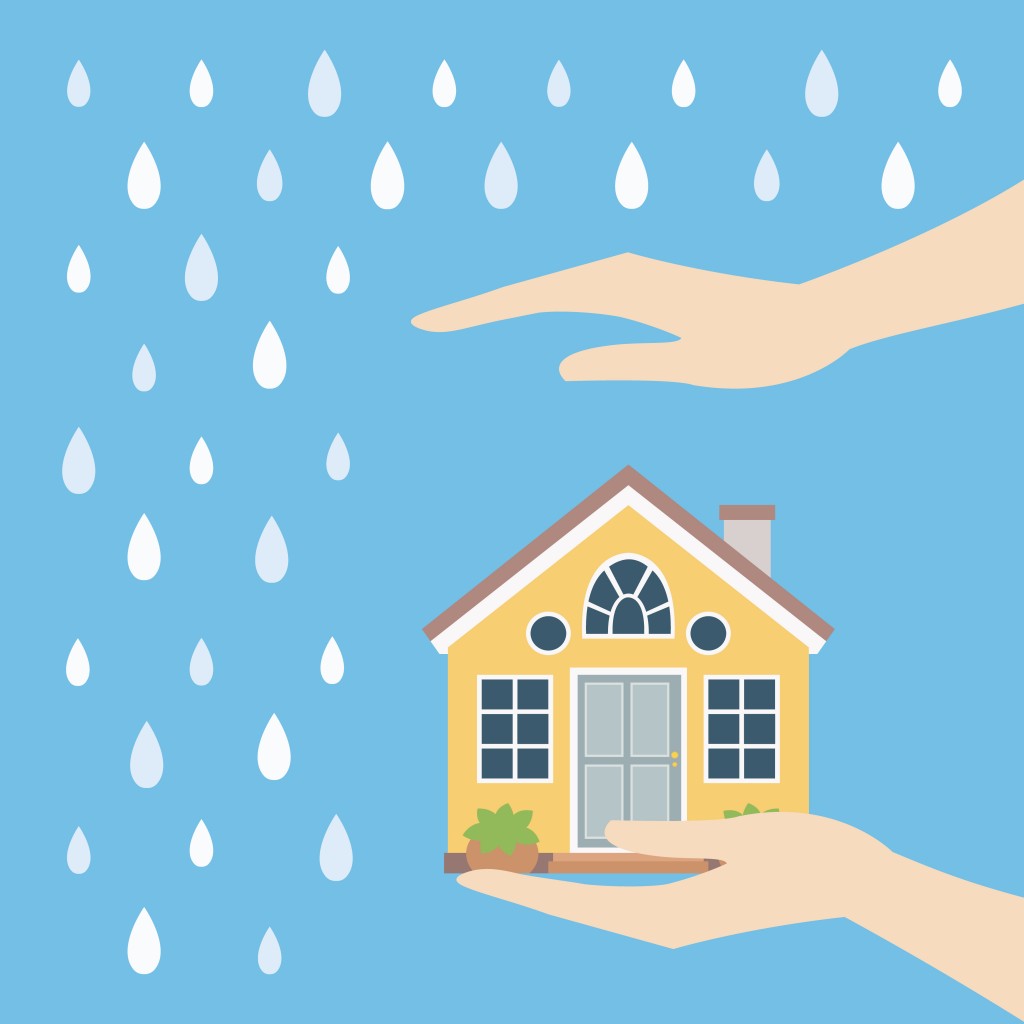Does Home Insurance Cover Water Damage?

Forty-four percent of Americans surveyed thought the answer was yes. And most of them were wrong, according to a 2013 survey on flood safety awareness. If your understanding of home insurance and water damage is, well, a bit watered down, this post’s for you…
Not All “Water Damage” Is Considered Equal
Water damage comes in many forms, from a variety of culprits:
- Surface Water Issues—clogged or overflowing gutters, misdirected downspouts, inadequate exterior grading, faulty irrigation systems, and seepage caused by everyday wear and tear. If water damages your home from one of these sources, it’s probably not covered by home insurance.
- Subsurface (Below Ground) Water Issues—saturated soil or rising ground water at the basement level. If water damages your home from one of these sources, it’s probably not covered.
- Storm Water or Sewer Pipe Back-Up—Sewer backups happen more often than you might think. And they may be covered, if you opt to add the appropriate endorsement to your policy. Keep reading to learn more.
- Overflow and Discharge Issues—burst pipes; plumbing defects; or sudden, malfunctioning appliances. These types of water damage events are mostly likely covered by your home insurance.
Insurance Covers Water Damage When It’s Sudden and Accidental
Unfortunately, only “sudden, accidental” causes of water damage are routinely covered by standard home insurance. When heavy rains occur—triggering surface or subsurface water problems—don’t assume insurance will take care of a basement cleanup, damaged possessions, or repairs to correct the problem.
According to our partners at Safety Insurance, “most standard homeowner’s insurance policies do not cover water damage caused by extreme weather conditions such as a rapid spring thaw or generalized flooding that originates outside your home. Even backed-up sewers aren’t covered on most policies, unless you pay extra for this coverage.” So should you pay extra? More on that below…
Preventing Other (Non-Sudden) Types of Water Damage
Your first order of business is to waterproof your home as much as possible. When it comes to drying out your basement, you may be able to offset the problem with some relatively inexpensive repairs. Extending your downspouts, installing splash blocks, doing some preventative landscaping, adding window well covers, sealing foundation/pavement cracks, and other small measures can help.
Subservice water issues are hardest (and most expensive) to remediate, but doing so can save you a lot of stress— not to mention potential mold issues in the long run. If baseline fixes don’t help, contact a local contractor to request a quote for sump pump installation and/or a perimeter drainage system. You should also ask for a few customer references. A true professional will be glad to share the names and contact information of satisfied clients.
Assessing Your Flood Risk
If your basement has been dry up until now, you’re not necessarily in the clear. Sudden downpours and long-duration storms can overwhelm even the most effective drainage systems. And you don’t have to live on the ocean or next to a river to be at risk for severe weather flooding. Roughly 20 to 25 percent of flood claims received by the NFIP (National Flood Insurance Program) originate from properties outside high-flood-risk areas. To learn more about your home’s risk level, visit www.floodsmart.gov and enter your property address.
Consider Adding an Endorsement
Do you need additional coverage for water damage? Your best bet is to sit down with your Massachusetts insurance agent, and talk about your risks and options. It might make sense for you to purchase one or more of the following endorsements:
- Sump Pump Failure
- Sewer Backup Coverage
Depending on where your home is located, you may also want to consider purchasing flood insurance in Massachusetts. In 2016 alone, the NFIP paid nearly 60,000 loss claims nationwide. Your Massachusetts insurance agency can help you with NFIP application forms for flood coverage. And as always, if you have additional questions about this or other home insurance topics, don’t hesitate to call us!
